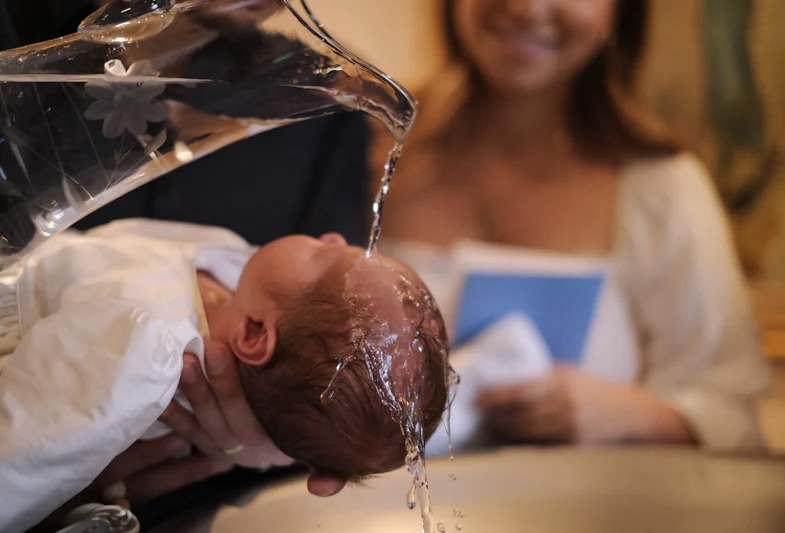
Godparents do not automatically become guardians if their godchildren are orphaned.
The role of godparents in the lives of your children is extraordinary.
They agree to pray for and encourage your children in the faith.
Although they have a close nurturing role within the family, they do not have legal rights to care for your children if both parents were to die.
While they may be people you "consider" guardians, you must determine whether they would be suitable backup parents and then take appropriate legal steps.

Those who want godparents to serve as guardians for their minor children will need to take the appropriate estate planning steps.
While godparents and guardians are selected based on shared values and love for the children, they serve different roles.
Godparents are chosen to support the spiritual and religious development of the children.
The godparents have key roles beginning with the child's baptism and will also support the child's upbringing, especially instruction in the faith.
While the godparents have moral responsibilities to the child, they have no legal rights or authority.
In contrast, the guardian is given the legal responsibility to rear and care for the minor children if the parents die or become unable to care for the children.
According to a Forbes article titled "Selecting Your Children's Guardians Is Very Different Than Naming Their Godparents," the guardian could eventually have authority over the child's healthcare, education, and general welfare.
The primary reason for godparents not becoming the de facto guardians is the distinct nature of the roles.
Godparents are selected for their ability to provide spiritual and moral guidance.
Guardians are selected to serve as backup parents.
These roles have similarities, but those selected as guardians should have the resources and time to become parents to your children.
Before naming a guardian, you must consider the role's various elements.
This can be an emotional and complex process.
What are some of the factors one should consider before naming a guardian?
Lifestyle Fit
Children require significant time, energy, and resources.
Asking someone to serve as a guardian for your minor children is a substantial request.
Those you choose should be able to accommodate rearing and caring for the children in their lifestyle.
Choosing someone who already has grown children or is a single individual constantly traveling for work poses lifestyle challenges.
Location
It is often better for guardians to live close to you.
Why?
Your children will experience less disruption if they are allowed to remain in the same community or school.
Losing their parents will be challenging enough, but having the comfort and support of friends, teachers, and coaches can be beneficial.
Financial Circumstances
Children are not cheap.
They require significant financial resources to house, clothe, feed, educate, and enrich through extracurricular activities.
Your guardians should be fiscally responsible to be able to support the needs of your children reliably.
To minimize the monetary burden of rearing your children, you can create a trust to provide for the financial needs of your offspring.
Shared Values
Generally, godparents are selected because they share the same values as the parents.
Guardians should also have values and parenting philosophies similar to yours.
It is unlikely to find a perfect match in these areas.
In short, you will want your children to receive a similar upbringing to what you would provide.
On the surface, naming a married couple as co-guardians can seem like a wise decision.
Even so, it may prove beneficial to name a single individual of the couple.
Why?
If the couple were to divorce or disagree significantly on how to care for your child, then these challenges could be less complicated.
Like other estate planning appointments, you should appoint successor guardians to serve in the role if your first choice is unwilling or unable to fulfill the role when the time comes.
Whether you choose godparents or guardians, you should ask the candidates if they will accept the appointment.
By requesting permission to name them, you can be more confident of their ability to fulfill their duties when you die.
Simply surprising your guardians with the appointment after you die can create complications and chaos.
While godparents are not required to have legal documentation of their status, guardians must have legal documentation of their authority.
Most states require the appointment of a guardian for minor children to be included in the last will and testament.
Failing to do so may leave the choice of your backup parents to the courts.
Yikes!
When a person has no last will or excludes a guardianship designation, a court must decide who will rear the orphaned children.
Unfortunately, absent your input, the court may give authority to someone you would not have chosen.
By naming a guardian in your last will, you can help secure your child's future and minimize family disputes.
While you may want to talk to your pastor or priest before naming your godparents for your children, it is not a requirement.
When selecting a guardian, it is wise to work with an experienced estate planning attorney.
This professional can help you navigate this selection and provide the legal documentation necessary for your state laws.
If you live in Kansas or Missouri, contact our office for an initial consultation to help secure the future for your little ones.
This post is for informational purposes only and does not provide legal advice. You should contact an attorney for advice concerning any particular issue or problem. Nothing herein creates an attorney-client relationship between Harvest Law KC and the reader.
Reference: Forbes (May 29, 2018) "Selecting Your Children's Guardians Is Very Different Than Naming Their Godparents"
REMEMBER: “The choice of a lawyer is an important decision and should not be based solely upon advertisements.”
This statement is required by rule of the Supreme Court of Missouri.
